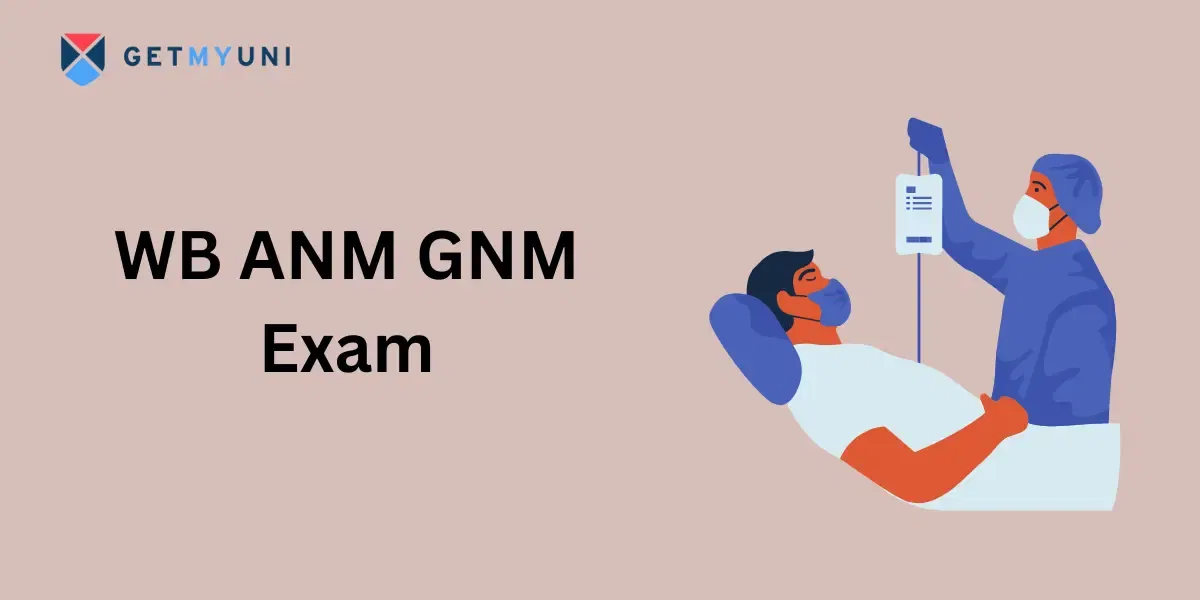Are you confused between choosing either BMLT vs BSc MLT? Get insights about the Eligibility, Admission, Fees, Job Scope, Syllabus, Salary, and Top Colleges.
Are you finding it difficult to choose between BMLT and BSc MLT? When considering an undergraduate course in Medical Laboratory Technology, many students are confused between BSc MLT vs BMLT. The subjects covered in BMLT and BSc MLT courses are similar; however, they have some variances. Both BSc MLT and BMLT courses teach healthcare lab diagnostic equipment and methods. Many students believe that the two courses are the same. This article will guide you pick between the two options and highlight the difference. So, continue reading.
BMLT vs BSc MLT: Key Highlights
BMLT and BSc MLT are two of the most popular courses for science enthusiasts. The two courses are part of a three-year undergraduate program that students may start after Class 12th. There are several reputable universities around the nation that provide BMLT or BSc MLT courses. Both the BSc MLT and BMLT programs provide a thorough grasp of the laboratory diagnostic methods and equipment used in the medical field. The following are some of the distinctions between the two:
|
Basis |
BMLT |
BSc MLT |
|
Eligibility |
Min. 50% in 10+2 |
Min. 50% in 10+2 |
|
Required Subjects |
PCB subjects in the high school |
PCB subjects in the high school |
|
Admission Process |
Merit Basis |
Merit / Entrance Basis |
|
Duration |
3 Years |
3 Years |
|
Average Fee |
INR 20,000 - 2,0,0,000 |
INR 10,000 - 2,00,000 |
|
Major Recruiters |
Hospitals; Laboratories; Diagnostic Centres; R&D Centres |
Hospitals; Laboratories; Diagnostic Centres; R&D Centres |
|
Job Profiles |
R&D Lab Assistant; Lab Technician; Educational Consultant |
Laboratory Testing Manager; Research Associate; System Analysts |
|
Initial Salary |
INR 3 - 4.5 LPA |
INR 4 - 6 LPA |
BMLT vs BSc MLT: Overview
The Bachelor of Medical Laboratory Technology (BMLT) focuses on gaining expertise through a strong theoretical and practical understanding of one specific area chosen by the candidate. It is the best career option for students who want to pursue a career in the field by working in laboratory administration, advancement, and instrumentation.
Read More: BMLT
Whereas BSc MLT is for students who want to master the theoretical as well as practical understanding of diagnosing, preventing, and treating various health conditions and diseases using clinical lab tests and methodologies.
Read More: BSc MLT
BMLT vs BSc MLT: Eligibility And Admission Process
Admission into any institute that offers an education in BMLT or BSc MLT follows a procedure that considers the student's effort and commitment, as well as their enthusiasm for the subject and programme. Students should be well-prepared for any entrance examination as well as the rounds of the admissions process because a lot of institutes need the students to mandatorily pass the entrance exams. For pursuing either of these courses must have the following criteria
BMLT Eligibility
- The candidate must be of at least 17 years of age.
- Needs to have scored a minimum of 50 per cent in Mathematics, Physics, Chemistry, and Biology from a recognised institute.
- Admission to the BMLT programme is usually based on academic merit. Students are then shortlisted based on their past academic records. The admissions procedure differs from college to college.
- Some institutes also require students to appear for a university-level entrance exam, followed by personal interviews. However, such institutes form a very small percentage of the total institutes offering the BMLT degree.
BSc MLT Eligibility
- The candidate must be of at least 17 years of age.
- Needs to have scored a minimum of 50 per cent in Mathematics, Physics, Chemistry, and Biology from a recognised institute.
- Admission to the BSc MLT programme is normally through a national-level entrance exam. And only a few institutes provide direct admission.
- Prior to the entrance exam, these universities release a merit list of the eligible candidates who are called for counselling sessions, during which each candidate gets to choose their preferred course and college on the basis of their ranks achieved in the entrance exam.
BMLT vs BSc MLT: Curriculum
While BMLT focuses on theory, a BSc in MLT is a speciality curriculum that teaches clinical laboratory testing methodologies to detect, treat, and prevent illness. A diploma in Medical Laboratory Technology is for those interested in illness prevention and treatment. Candidates are taught to handle equipment, perform tests, collect data, and write results. The Bachelor of Science in Medical Laboratory Technology degree prepares students for clinical laboratory operations, therapies, and illness prevention. In the course, students analyse bodily fluids using haematology, bacteriology, immunology, chemical analysis, and microscopic examination. The courses cover the following topics:
BMLT Subjects
- Physiology
- Microbiology
- Serology
- Biochemistry
- Pathology
- Immunology
- Human Anatomy
- Clinical Haematology
- Cardiovascular System
Read More: BMLT Syllabus & Subjects
BSc MLT subjects
- Clinical Enzymology Lab
- Virology
- Parasitology
- Diagnostic Cytology
- Serology
- Clinical Endocrinology
- Immunohematology
- Toxicology Laboratory
Read More: BSc MLT Syllabus and Subjects
BMLT vs BSc MLT: Scope And Opportunities
The scope of both the courses are very broad, and graduates with either of these degrees get myriad employment opportunities in a variety of industries all around the world. A career in the field of medical laboratory technology is one of the most rewarding careers. Candidates and professionals in this field get to learn something new every day, which is beneficial for their career. With the passage of time, the courses have grown in terms of what a candidate gets to learn during the programme, which in turn expands the scope. Out of a large number of job opportunities available to graduates with a degree in BMLT or BSc BMLT, some of the most sought after is added below:
BMLT Job Profiles
- Lab Technologist
- R&D Lab Assistant
- Assistant Professor
- X-Ray Technician
- Laboratory Manager
Read More: BMLT Jobscope
BSc MLT Job Profiles
- Research Associate
- MRI Technician
- CT Scan Technician
- Laboratory testing Manager
- Laboratory Technician
Read More: BSc MLT Jobscope
BMLT vs BSc MLT: Salary
After completion of undergraduate programs in BMLT and BSc MLT, students are offered a variety of career options in reputed corporates and government agencies. However, a lot of focus is on the salary available for these work responsibilities, because at times the compensation offered to a graduate is less as compared to the workload. Below is the average compensation paid to some of the job profiles under each course.
BMLT Salary
|
Job Profiles |
Average Payscale |
|
Lab Technologist |
INR 2.4 LPA |
|
Assistant Professor |
INR 3.2 LPA |
|
X-ray Technician |
INR 2 LPA |
|
Laboratory Manager |
INR 5.5 LPA |
Read More: BMLT Salary
BSc MLT Salary
|
Job Profiles |
Average Payscale |
|
Research Associate |
INR 3.7 LPA |
|
MRI Technician |
INR 3.9 LPA |
|
Laboratory Testing Manager |
INR 2.5 LPA |
|
Laboratory Technician |
INR 2.4 LPA |
Read More: BSc MLT Salary
BMLT vs BSc MLT: Top Colleges
Many prominent institutes and universities around the country offer the BMLT and/or BSc BMLT programme. These colleges are known for their world-class facilities and keen focus on providing a comfortable learning environment. The list below encapsulates the names of some of the best universities that offer these courses, in no particular order:
Top BMLT Colleges
Read More: Top BMLT Colleges in India
Top BSc MLT Colleges
- Chandigarh University
- Government Medical College Kerala
- SRM Institute of Technology
- Siksha O Anusandhan University
Read More: Top BSc MLT Colleges in India
BMLT vs BSc MLT: Which One to Choose?
In the end, we can surely say that a student. A BMLT and BSc MLT student has exposure to plenty of opportunities in the medical and pharmaceutical world. These courses act as the perfect launchpad for the students aspiring to build a career in pharmacy and medicine. From the fee structure to the tenure and from the curriculum to the opportunities offered, both the courses have been structured to bring in the maximum amount of expertise in their respective field to these aspirants. Two such things that make these course unique are-
Evergreen Demand: A career in Medical Science is one of the most prestigious and in-demand courses for people interested in the healthcare industry. The curriculum of both these courses includes subjects that teach students how to operate advanced laboratory equipment and conduct correct laboratory tests.
Future Scope: It prepares the candidates to work in educational institutions, hospitals, and government agencies, where they can run laboratories, consultancies, and health care centres. A candidate with BMLT or BSc MLT degree can also pursue master's degree programmes in their respective fields and subsequently pursue additional education.
In the end, it depends on the students and their inclination towards the field of study and the most importantly their goals.










